Fret Rocker+ with String Action Gauge/Pickup Ruler
$29.99
- The high quality stainless steel is the perfect thickness at .07” (1.8mm) and features precision edges achieved through single setup, continuous 5-axis CNC producing flawless flat edges with an accuracy tolerance of +/-.0015”/ft.
- Our patented 5 edge design allows for balanced weight and precise diagnosis of fret evenness, includes 4 straightedges (1.25”, 2”, 3” and 4”) for accurate fret rocking
- More than just a Fret Rocker, we include an accurate String Action Gauge and Pickup Height Ruler in inches and metric that are easy to read with our innovative blue finish and deep etched white markings. Our convenient chart on proper height by instrument type & measurement instructions takes out the guesswork. The Pickup Ruler helps you dial in your sound even more.
- High quality stainless steel design with numbers and lines that don’t rub off ensures years of use, and each corner is smoothed and polished to prevent sharp edges from damaging your instrument…and your hands. We also include a convenient hang hole.
- Works in tandem with MusicNomad’s Precision Fret Gauge (sold separately) the perfect fret evaluation tool combo for all fretted instruments including acoustic guitars, electric guitars, bass, and more.
What if you could quickly and confidently check for fret issues, measure string action, and pickup height with one easy to use tool? Being able to diagnose fret levelness is the first step in fret care for any fretted instrument. MusicNomad’s Fret Rocker+ is packed with unmatched features & benefits. The high quality stainless steel is the perfect thickness at .07” (1.8mm), that’s 4 times thicker than our String Action Gauge, ensuring accurate diagnosis on all fretted instruments. Our unique continuous 5-axis CNC manufacturing process produces flawless flat edges with an accuracy tolerance of +/-.0015”/ft. We’ve designed our fret rocker with 5 edges to create a more balanced, easy to use shape that includes 4 different side lengths to find the side that lays across 3 frets. On top of accurate fret diagnosis, you can use the Fret Rocker+ to check string action and pickup height. We include measurements in inches and metric that are easy to read with our innovative blue finish contrasted with deep etched white markings. That’s MusicNomad quality–raising the bar in equipment care.
Why do I need a fret rocker?
A fret rocker is an invaluable tool and will help you diagnose potential issues with the frets on any of your fretted instruments. If you notice signs of uneven frets, you can use your fret rocker to determine where the high or low frets are. Uneven frets can cause various playability issues.
What causes uneven frets?
Uneven frets are most commonly due to inaccuracy in the manufacturing process. They may not be seated properly and they may not be properly leveled. They may not even be leveled at all. Uneven frets can also be due to excessive playing wear, causing divots/flat spots that change the height of the fret. Frets can also become unseated over time due to improper installation, over oiling of the fingerboard or humidity changes.
What are signs of uneven frets?
Uneven frets can cause various issues on a guitar (or other fretted instrument), affecting overall playability and sound quality. Uneven frets impede the strings ability to vibrate correctly and can cause fret buzz and cause low notes to choke out. Signs of uneven frets can include:
- Fret Buzz. If you hear buzzing or rattling sound when you play, it could be a sign of uneven frets.
- High Action: If you have frets that are too high, you may have to have high string action to compensate, making playing harder.
What causes fret buzz?
Fret buzz is a common issue on electric guitars and other fretted instruments. Uneven frets can be a common cause of fret buzz, but may also be caused by heavy pick attack, low action, improper neck relief, magnetic pull from the pickups or insufficient string height at the nut.
Very Useful! One of the most used tools in the shop. It’s got all the relevant information and measurements etched on it.
Erik B. left this review on Amazon about our Fret Rocker+
This is the perfect multi tool for guitar setup. I checked for accuracy and level, and both are spot on!
Customer Review on Amazon about our Fret Rocker+
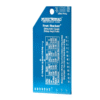





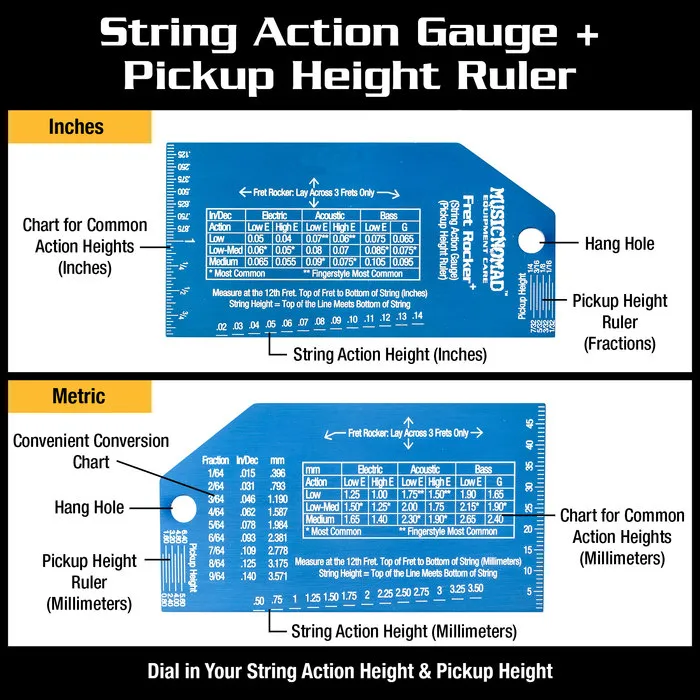
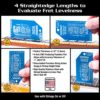
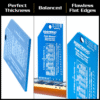
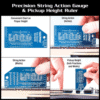
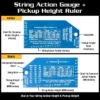
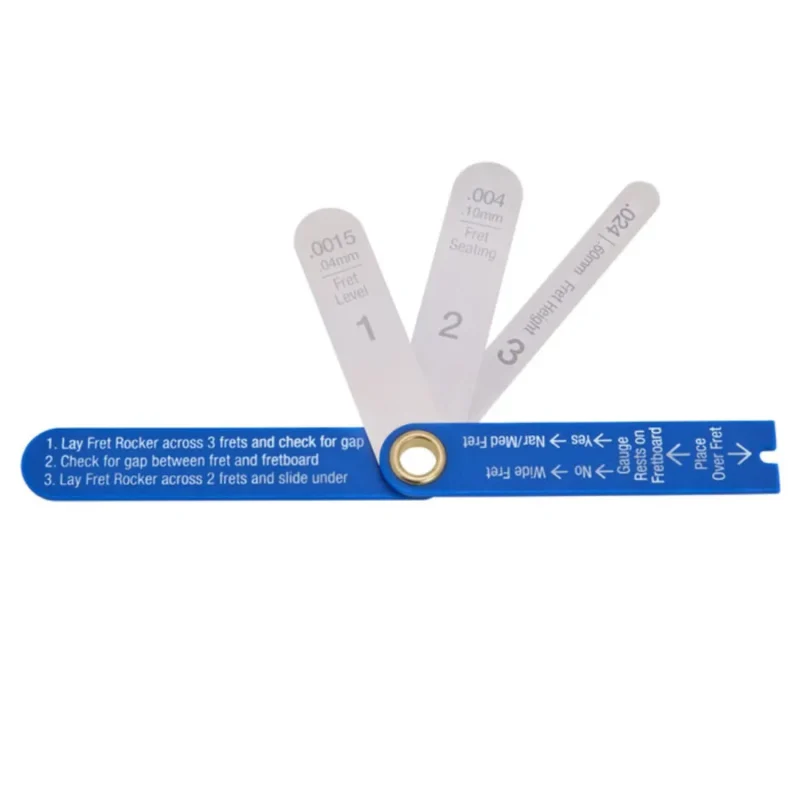
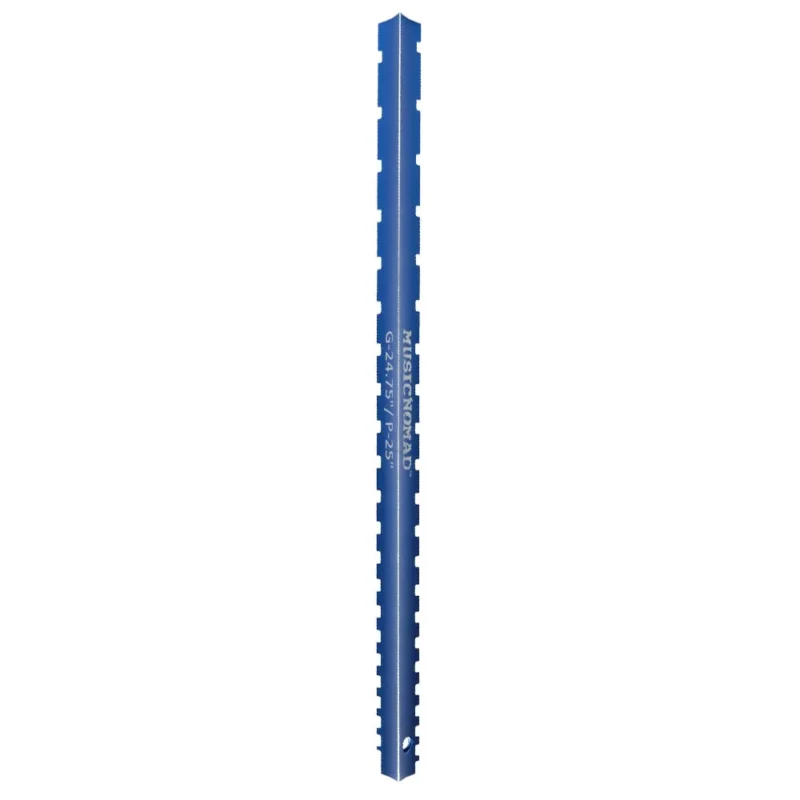
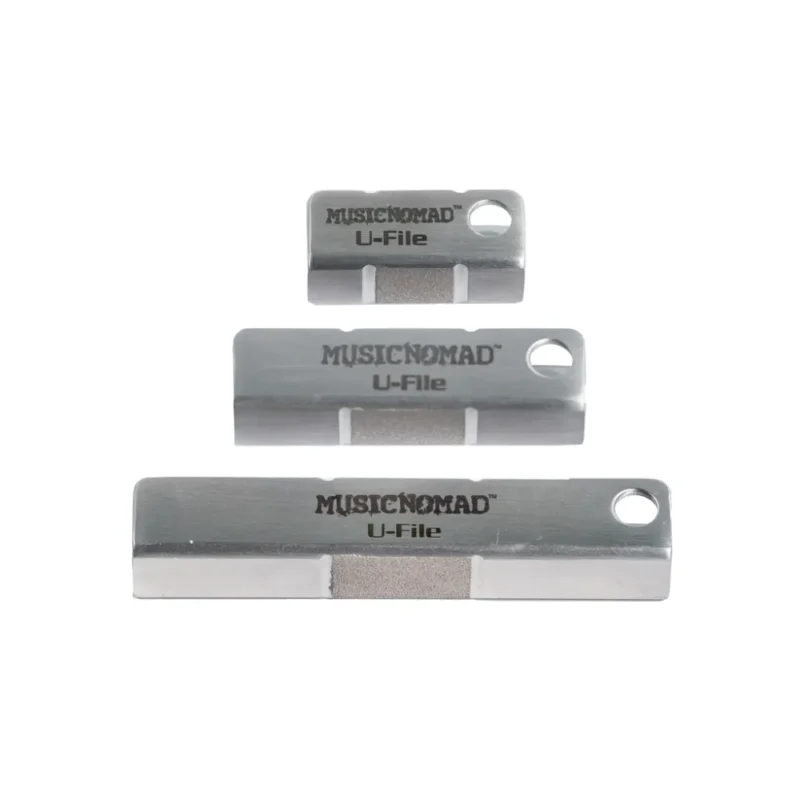
Reviews
There are no reviews yet.